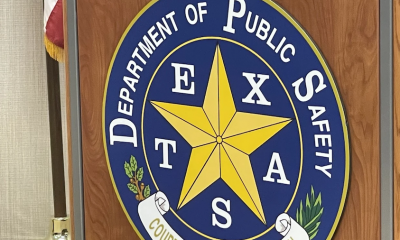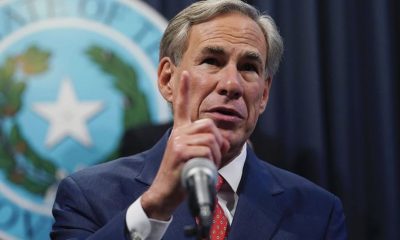Texas
Why Have Texas’s Restrictive Voter Bills Received Less Corporate Pushback Than the Ones in Georgia?
TX – Experts often cite a feeling of powerlessness as a common source of anger. And Lieutenant Governor Dan Patrick was visibly angry at a news conference on April 6. He had lost control of the messaging on his “election integrity” bill days after it passed the Senate. A few corporate leaders in the state had come out against the legislation, widely viewed as aimed at making it more difficult for minorities to vote. They perhaps reminded Patrick of the hundreds of companies that had rallied against his 2017 anti-transgender bathroom bill and ultimately helped kill its passage in the House. With the pecan-wood blinds closed behind him so he would not be backlit for the television cameras lining his Capitol reception room, Patrick unleashed vitriol against the corporations and the news media that were describing his election overhaul legislation, Senate Bill 7, as voter suppression.
“I take it personally,” Patrick said, eyes glaring as his right index finger slashed through the air. “You are questioning my integrity and the integrity of the governor and the integrity of the eighteen Republican senators who voted for this. When you suggest we are trying to suppress the vote, you are in essence, between the lines, calling us racists.” His voice rose as he stabbed his finger forward. “That will not stand!”
Though he was more animated than usual, the news conference wasn’t the only time this session Patrick had found himself at odds with the changing political landscape big companies must navigate today, in Texas and the rest of America. On Monday, right before the Senate passed a bill that would ban high school athletes from participating in sports designated for a gender that does not match their “biological sex,” the NCAA governing board threatened to withdraw from states that pass such laws all college championship contests—such as the 2023 Final Four basketball games set to be played in Houston. Then, on Thursday, after months of Patrick’s urging, the Senate approved a bill that could require state pension and education funds in control of $16 billion in state money to fire Wall Street money managers who are trimming their investments in fossil fuels. The debate over the Senate’s election bill was not new territory, but it had struck a nerve.
Fort Worth–based American Airlines and Michael Dell, CEO of Dell Technologies, headquartered in Round Rock, directly criticized voting restrictions pending in the Legislature. Southwest Airlines and AT&T, both based in Dallas, put out more general statements opposing any such legislation around the country. Other companies with large operations in Texas, such as Amazon, BP America, Dow Chemical, and United Airlines, have joined the hundreds of companies calling on lawmakers to “ensure that every eligible American has the freedom to easily cast their ballot.” And last weekend, more than one hundred corporate leaders from around the nation participated in a videoconference to discuss opposing voting laws such as those proposed in Texas or passed in Georgia, which recently made it illegal to provide water or food to those waiting to vote in what often are hours-long lines, especially in poorer neighborhoods.
The current corporate culture is certainly different than the one that existed even ten years ago. John T. Montford, a former state senator who became the CEO of Southwestern Bell before it was absorbed into AT&T, said corporate CEOs still need to look out for the interest of their shareholders. But, he said, “we see corporations evolving in the current generation,” because more and more of their customers, especially younger ones, are sensitive to global warming, issues involving racial and gender equity, and LGBTQ rights.










